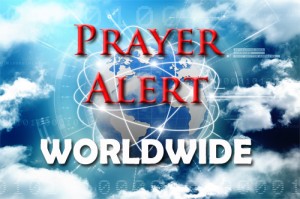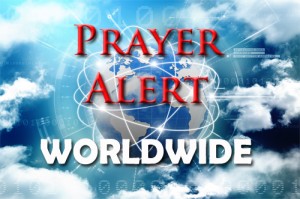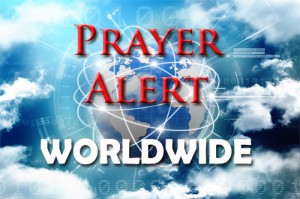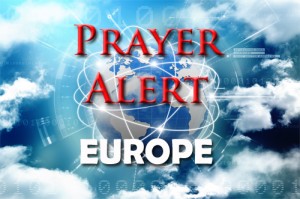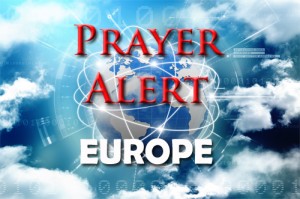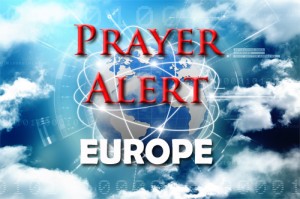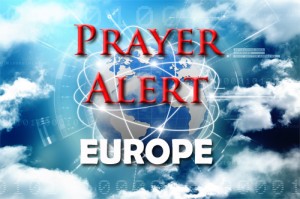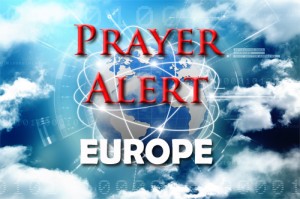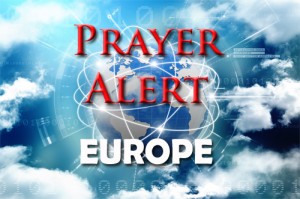Displaying items by tag: Europe
Two US destroyers sent into Black Sea
Two American destroyers have sailed into the Black Sea, the first time since 2014 that more than one US warship has operated in this tense region other than in an exercise. ‘Our decision to have two ships operate simultaneously in the Black Sea is proactive, not reactive’, said vice admiral Christopher Grady. ‘We operate at the tempo and timing of our choosing in this strategically important region.’ Russia has viewed US ships transiting these international waters as provocative, ever since it annexed Ukraine's Crimean peninsula in 2014. ‘The US is sending a message that it will defend its allies, uphold maritime laws and protect its offshore interests in Europe and Asia’, said a Naval War College professor of strategy. ‘We're putting Russia on notice in the Black Sea and China on notice in the South China Sea that we will not be deterred from going into those waters, and doing so in force.’
Poland: Holocaust complicity bill
Recently a bill was approved that makes it illegal to accuse Poland of complicity in crimes committed by Nazi Germany, including the Holocaust. The bill bans the use of terms like ‘Polish death camps’ in relation to Auschwitz and others located in Nazi-occupied Poland. To become law, the bill must be signed by President Duda, who has expressed his support. Historians agree that Polish individuals and groups collaborated with the Nazi occupiers, but recent Polish governments have sought to challenge that narrative. This legislation will outlaw any remark that attributes responsibility to Poland for the Nazi crimes. Benjamin Netanyahu called the bill ‘baseless’, saying, ‘One cannot change history, and the Holocaust cannot be denied.’ Death camp survivors fear Holocaust deniers are winning. The new legislation risks blurring the historical truths regarding the assistance the Germans received from the Polish population during the Holocaust. There is no doubt that the term ‘Polish death camps’ is a historical misrepresentation.
Hungary: NGOs helping immigrants could be banned
Viktor Orbán’s government has outlined plans for a new law giving it powers to ban any NGOs that ‘sponsor, organise or support a third-country national’s entry into or stay in Hungary via a safe third country in order to ensure international protection’. Mr Orban has campaigned heavily on the issue of immigration to Hungary. He says that the law will prevent the giving up of ‘national independence’ and hinder politicians who he claims want to ‘transform Hungary into an immigrant country’. His party is expected to win a huge victory in the 8 April election. NGOs would need a permit to operate, and even then could be prevented from working on ‘national security’ grounds. NGOs with approval would pay a special 25% tax on any international funding aimed at helping migrants and refugees. Some could be labelled activists and be issued with restraining orders to prevent them from going near Hungary’s borders.
Increased risk of war, warns report
The 2018 annual Munich Security Report cited growing pressure on nuclear disarmament treaties and ongoing security concerns in eastern and central Europe as a cause for concern, and most worryingly the erosion of arms control agreements. ‘Deployment of additional weapons and tensions over military exercises has increased the risk of an inadvertent armed clash’, the report warns. ‘In this dire state of affairs, miscalculations and misunderstandings could lead to unintended military clashes. The Ukraine conflict was a stumbling block to de-escalation of tensions between Russia and the West.’ America’s decision to provide lethal arms to Ukraine would cement the current stalemate as countries in eastern Europe struggle in an environment of contested security, with the EU and NATO on one side and Russia on the other, at a time when the EU's Eastern partnership policy has ‘lost its steam’.
Poland: Catholic Church of the far right
Far-right Polish groups are using links to religion to gain mainstream influence. A terrified onlooker saw hooligans chanting overtly racist and fascist slogans, calling for ‘White Poland’, and shouting ‘Beat the red scum’. He saw priests simply moving to the rhythm of these chants, doing nothing about them. Approaching two of them, he asked, ‘Is this what your Catholicism looks like?’ They lowered their heads, but said nothing. The church’s hard-line nationalist wing is out of control, and nobody is able or willing to stop it. Observers point to the close connections between the Catholic Church and two high-profile nationalist movements. The messages that Catholicism is the only true religion and that Poles are superior to other nations are thinly veiled by shallow humanitarian slogans.
Intercessor Focus: Russian elections
In 2017 anti-Putin rallies attracted thousands in remote regions where people opposed Kremlin-run politics and called for credible opposition to be allowed to stand in elections. Alexei Navalny planned to face President Putin in March’s Presidential election, but was banned after dubious fraud accusations. On 28 January he was freed from a twenty-day jail term for organising anti-Putin protests, but was re-arrested the same day. Thousands protested against government corruption outside the Kremlin and across Russia, calling the election a farce and urging people not to vote. Kremlin-controlled media are not covering the protests. Putin is expected to win, but his main concern is getting enough people voting to make the election appear credible. For INSIGHTS into unethical, corrupt elections due in 2018 click the ‘More’ button.
Europe to forcibly repatriate Iraqis
European countries are to send Iraqi refugees back to Iraq if their asylum cases are rejected. Baghdad said returning them should be voluntary, not compulsory. Ivan Sahda Moshi has been hiding at a friend’s house in Gothenburg since 1 December, 2017, when a Swedish ruling demanded he return to Iraq. ‘I hope my case is looked over again,’ said Moshi, a Christian who fled Iraq in 2007. He fears returning, as militias threatened to kill him because he worked with US forces; also Christians are a threatened minority in Iraq. In a similar case, Hassan Amer’s asylum request was rejected by Austrian authorities. He submitted an appeal and is waiting for a new hearing so that he can explain his position. Media reporting about forcible repatriation is terrifying Iraqi asylum seekers.
Irish referendum on abortion by end of May
Abortions are illegal in Northern Ireland and the Republic of Ireland. There is a new wave of youth-driven campaigning on both sides of the abortion argument, which will come to a head over the next few months now that the Irish government has confirmed it will hold a referendum on reform of the country’s strict anti-abortion laws by the end of May.
Sunrise Prayer Relay Catching on Around the World
See some of the USA testimonies from Florida, South Dakota and Tennessee.
We are cheating a bit to say 50 countries because Puerto Rico is part of USA but they seem to regard themselves as another country. These countries included in the 50 are Australia, Austria, Bahamas, Burundi, Cameroon, Canada, China, Congo, Côte d'Ivoire (Ivory Coast), Czech Republic, Denmark, England, Fiji, France, Germany, Ghana, India, Indonesia, Iraq, Israel, Japan, Liberia, Kenya, Mauritius, Namibia, New Zealand, Nigeria. North Korea, Pakistan, Papua New Guinea, Philippines, Puerto Rico, Rwanda, Russia, Samoa, Saudi Arabia, Singapore, Solomon Islands, South Africa, South Korea, Sweden, Switzerland, Tanzania, Thailand, Tonga, Tunisia, United Arab Emirates, Uganda, USA and Vanuatu.
Check out more testimonies HERE - There are many more still to come!
Suffice to say from small beginnings in 2016 the New Year’s Sunrise Prayer Relay is exploding. There were 23 NATIONS where locations were confirmed in 2017 for the New Year's Day Sunrise Prayer Relay, so we have had a huge multiplication of people, locations, and nations praying in 2018. We believe that when people pray God moves and we are expecting Him to move powerfully in 2018 in EVERY NATION as we continue to pray for awakening, revival, and transformation in the name of Jesus.
This year we had 141 REGISTERED GLOBAL PUBLIC LOCATIONS with hundreds more that are private. This was an increase from around 100 on New Year's Day 2017, we are still going through the global registrations to confirm but at this stage we can say there were over 400 valid registrations worldwide this year, it was very difficult to confirm some of the locations and we are currently looking into more effective ways to register locations globally.
We also know of many locations globally that were not registered, or informed us via email or message that they were praying with us, we did not count these. We believe that the number of unregistered locations is greater than the number of registered locations. We need to simplify to multiply in other nations, and we would love to get prayer networks in nations like USA, UK & South Africa more involved to help with getting the word out and administration in their countries the way National Day of Prayer & Fasting has done for Australia.
The beauty of the New Year’s Day Sunrise Prayer Relay is that it is short (30 MINs),easy to do, easy to promote, requires minimal effort, is organic in nature, rides on an existing established event (New Year’s Day Sunrise) and has a proven track record of encouraging and reproducing more daily, weekly and monthly prayer events.
Warwick Marsh & Pat Steele
Global Coordinators Sunrise Prayer Relay
www.sunriseprayerrelay.org
Ireland: combat the tide of evil
A leading Irish expert has called Church leaders to appoint a team of exorcists to cope with what he sees as a rising tide of evil in the country. While many believe exorcisms only happen in Hollywood blockbusters, exorcist Fr Pat Collins said he is besieged by desperate people seeking help to deal with what they believe to be demonic possession and evil activity. He is ‘baffled’ that Irish bishops are not taking more action to appoint priests to deal with everything from ghostly encounters, being pulled from their beds, and full-blown possession. ‘What I’m finding is people who in their own minds believe - rightly or wrongly - that they’re afflicted by evil spirits. In many cases it is wrongly, but when they turn to the Church we don’t know what to do, and often they are not helped.' He also said there was growing apostasy within the Church. 'As this has happened, there is increasing evidence of the malicious activity of the evil one.’
